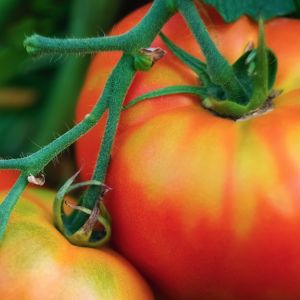If you want to grow the best tomatoes, it’s important to start with the right kind of compost. Compost is an essential ingredient for growing healthy tomato plants, as it provides the nutrients and organic matter that tomatoes need to thrive. But with so many different types of compost available, it can be difficult to know which one is the best for your tomatoes.
This post may contain affiliate links.
The Best Types of Compost for Tomatoes
Organic Compost
Organic compost is made from natural materials such as grass clippings, leaves, and food waste. It is an great choice for tomatoes because it is rich in nutrients and helps to improve soil structure. Organic compost also helps to retain moisture, which is important for growing healthy tomatoes.
Related Article: Grow Big Tomatoes in Pots: Tips and Tricks for a Bountiful Harvest
One of the best things about organic compost is that you can make it yourself at home. By composting your own food waste and yard debris, you can create a nutrient-rich soil amendment that is perfect for growing tomatoes. Alternatively, you can purchase organic compost from a local garden center or online retailer.
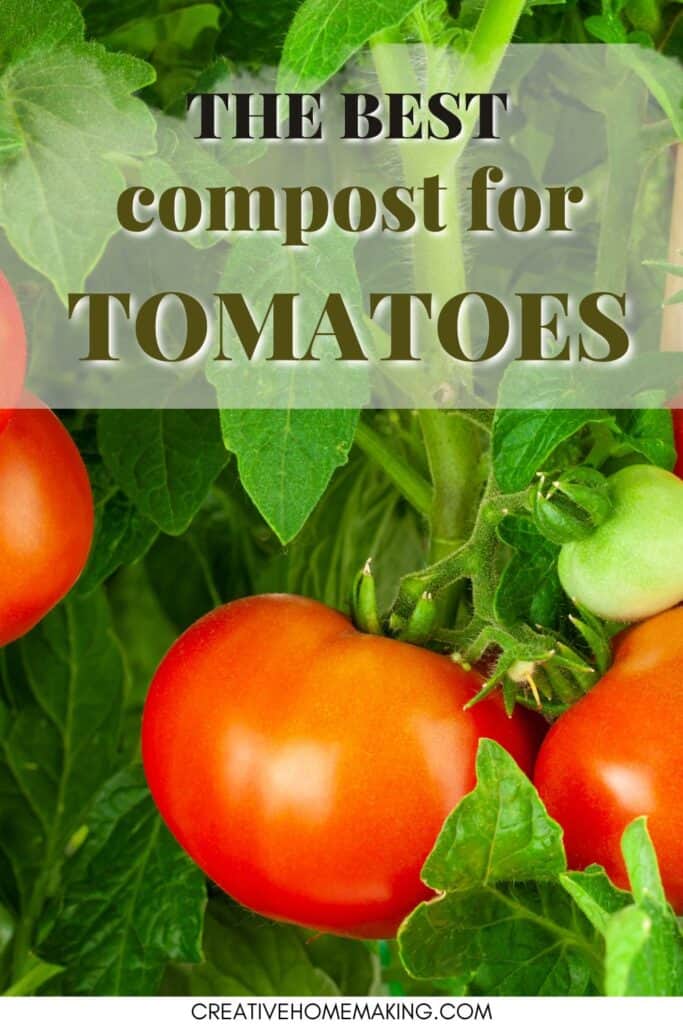
Homemade Compost
Homemade compost is a type of organic compost that you make yourself using kitchen scraps, yard waste, and other organic materials. Making your own compost is a great way to reduce waste and create a nutrient-rich soil amendment for your tomatoes.
To make homemade compost, you’ll need a compost bin or pile, which can be made from a variety of materials such as wood, wire, or plastic. You’ll also need to add organic materials such as fruit and vegetable scraps, grass clippings, and leaves. Over time, the organic materials will break down and turn into a nutrient-rich compost that is perfect for growing tomatoes.
Related Article: How to Prune Tomatoes for a Bountiful Harvest
There are different types of compost bins that you can use to collect your kitchen scraps for composting. I love these small ones you can use to collect your food scraps right in your kitchen. This one holds about a gallon of compost.
This container holds 2.5 gallons of compost and is really effective at keeping all the odors confined to the inside of the container. If you’re looking for a compost container for outside, you can get a larger one like this one.
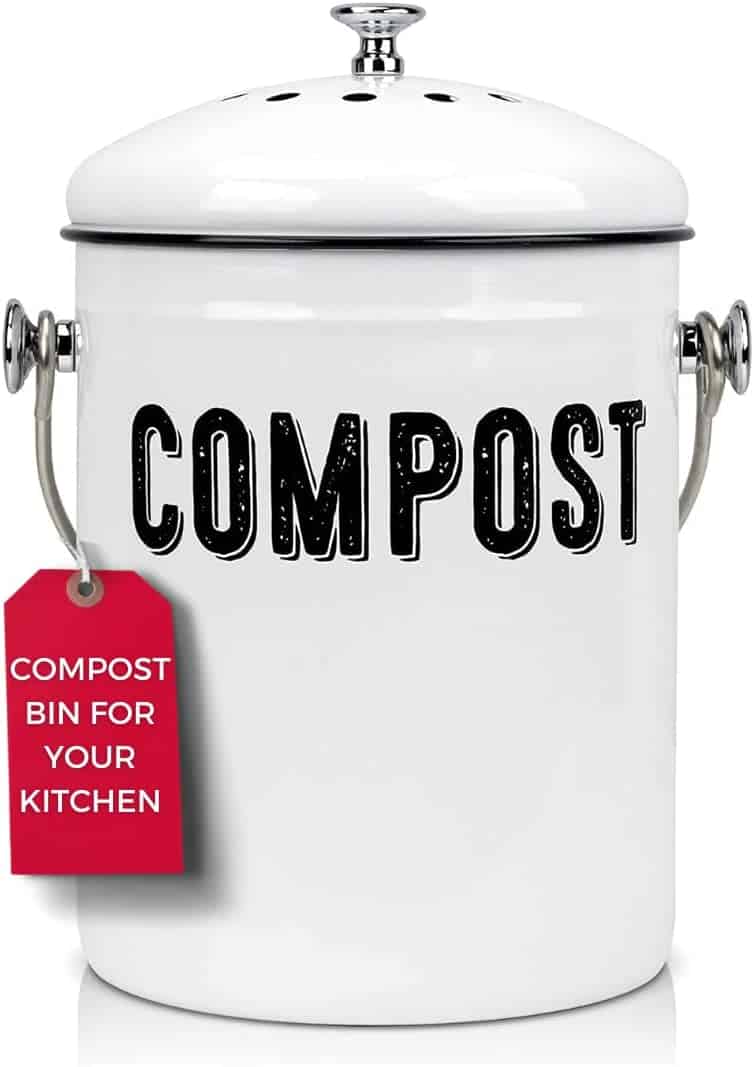 Kitchen Compost Bin Countertop, Indoor Compost Bin, Countertop Compost Bin with Lid, 100% Rust Proof Compost Bucket w/Non-Smell Charcoal Filters, 1.3 Gallon – White
Kitchen Compost Bin Countertop, Indoor Compost Bin, Countertop Compost Bin with Lid, 100% Rust Proof Compost Bucket w/Non-Smell Charcoal Filters, 1.3 Gallon – White
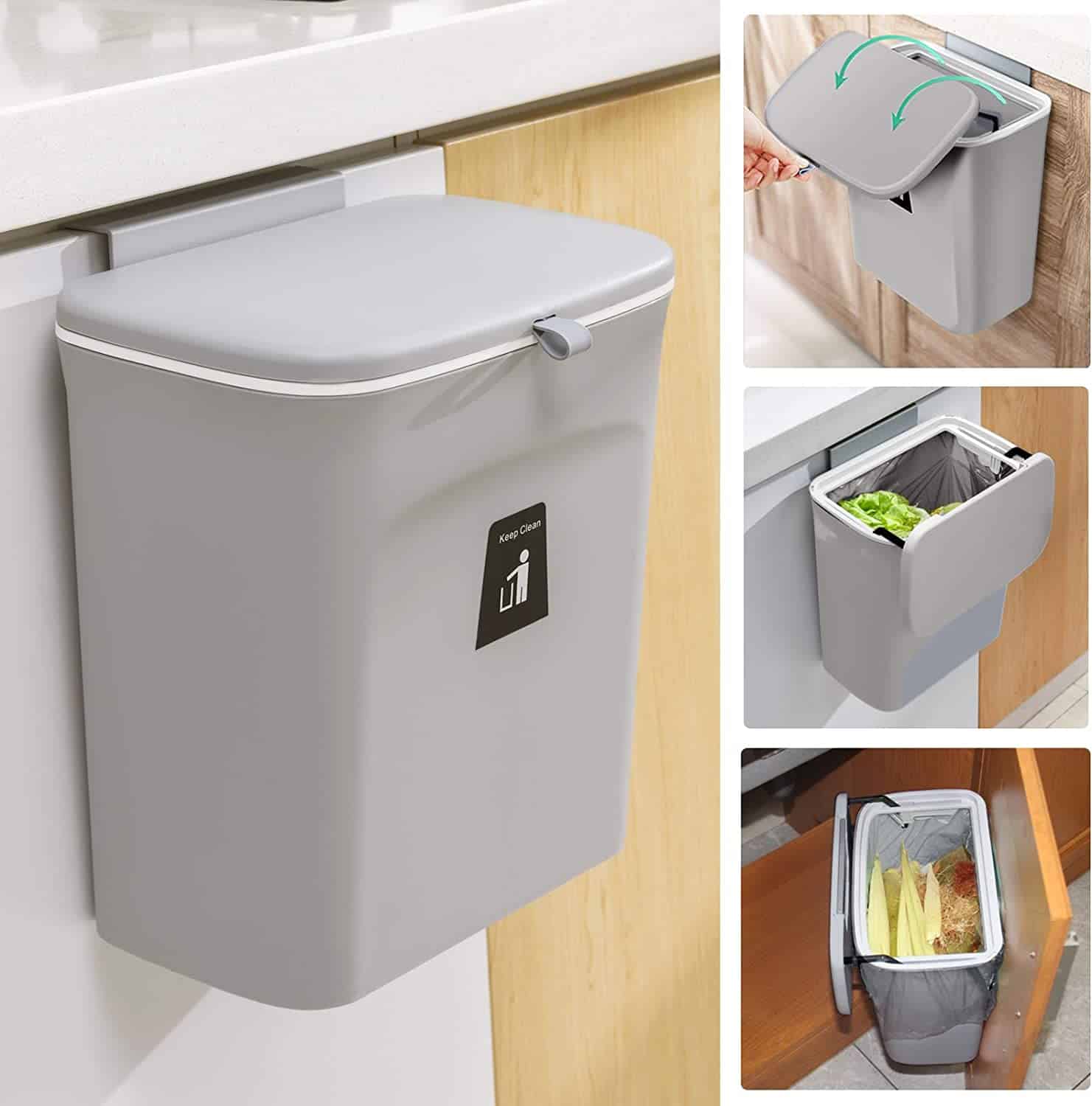 2.4 Gallon Kitchen Compost Bin for Counter Top or Under Sink, Hanging Small Trash Can with Lid
2.4 Gallon Kitchen Compost Bin for Counter Top or Under Sink, Hanging Small Trash Can with Lid
Bagged Compost
Bagged compost is a convenient option if you don’t have the time or space to make your own compost. It’s available at most garden centers and online retailers, and it comes in a variety of types and formulations.
When choosing bagged compost for your tomatoes, look for a product that is high in nitrogen and has a slightly acidic pH level. It should also be well-aerated and free of any disease-causing organisms. Some popular types of bagged compost for tomatoes include sphagnum peat moss, coir, vermiculite, and perlite.
What to Look for in a Compost for Tomatoes
A good compost for tomatoes should provide the right balance of nutrients, pH level, water retention, and aeration. In this section, we’ll take a closer look at each of these factors to help you choose the best compost for your tomato plants.
Related Article: How to Make Compost Tea: A Quick and Easy Guide
Nutrient Content
Tomatoes require a variety of nutrients to grow healthy and produce high-quality fruit. A good compost for tomatoes should contain a balanced mix of macronutrients, such as nitrogen, phosphorus, and potassium, as well as micronutrients like calcium, magnesium, and iron. Organic matter, such as manure, is an excellent source of nutrients for your soil.
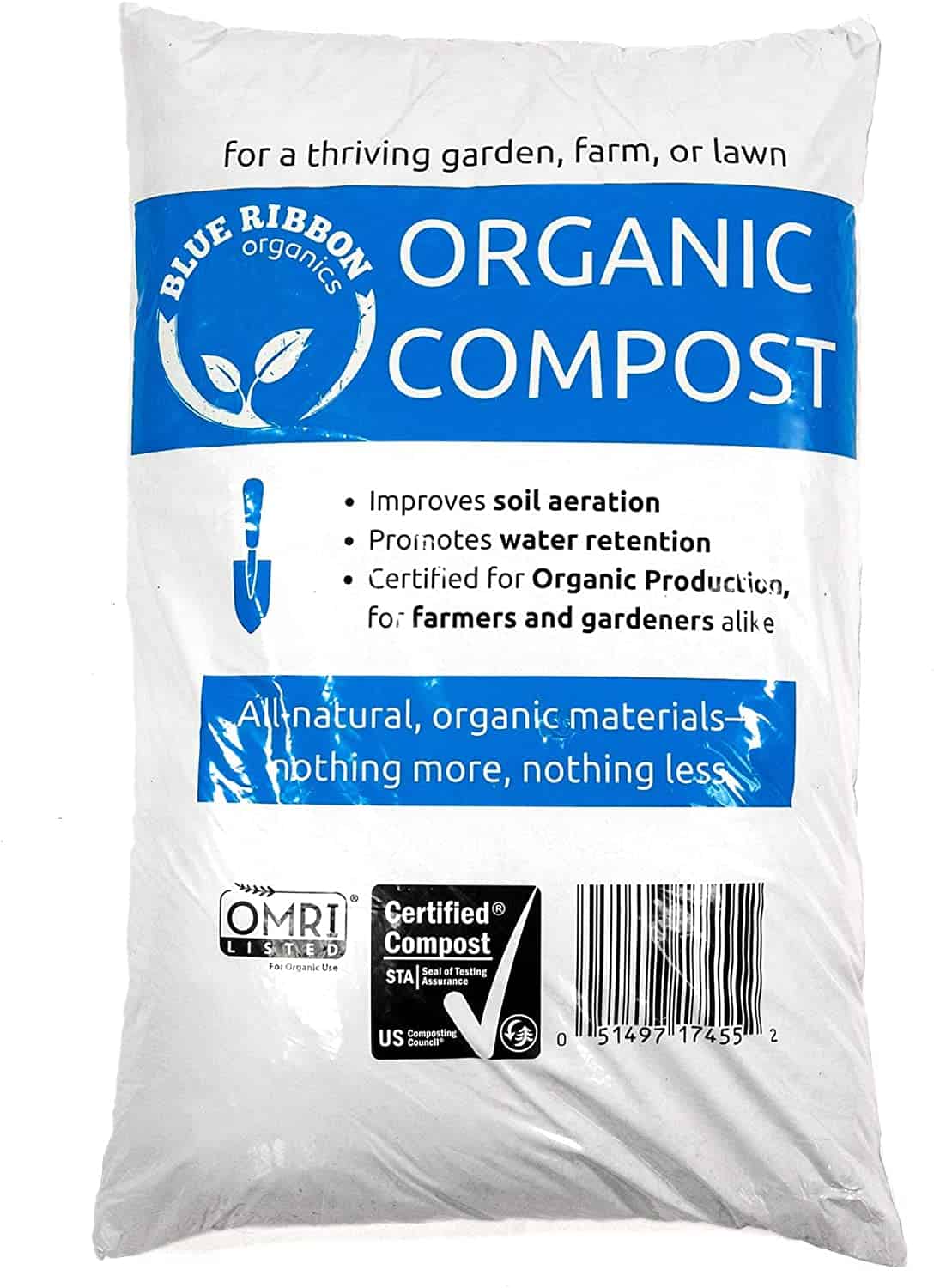 Ribbon Organics OMRI Certified Organic Compost Size: 7.9 Gallons, 32-35 Pound Bag
Ribbon Organics OMRI Certified Organic Compost Size: 7.9 Gallons, 32-35 Pound Bag
pH Level
Tomatoes prefer a slightly acidic soil with a pH level between 6.0 and 6.8. A good compost for tomatoes should have a pH level within this range. If your compost is too alkaline, you can add lime to adjust the pH level.
Related Article: Why Are the Bottoms of My Tomatoes Black? Causes and Solutions
Water Retention
Tomatoes require consistent moisture to grow and produce fruit. A good compost for tomatoes should have the ability to retain water while still allowing for proper drainage. Compost that contains particles of clay can effectively retain moisture and nutrients, while fine gravel and sand can improve drainage.
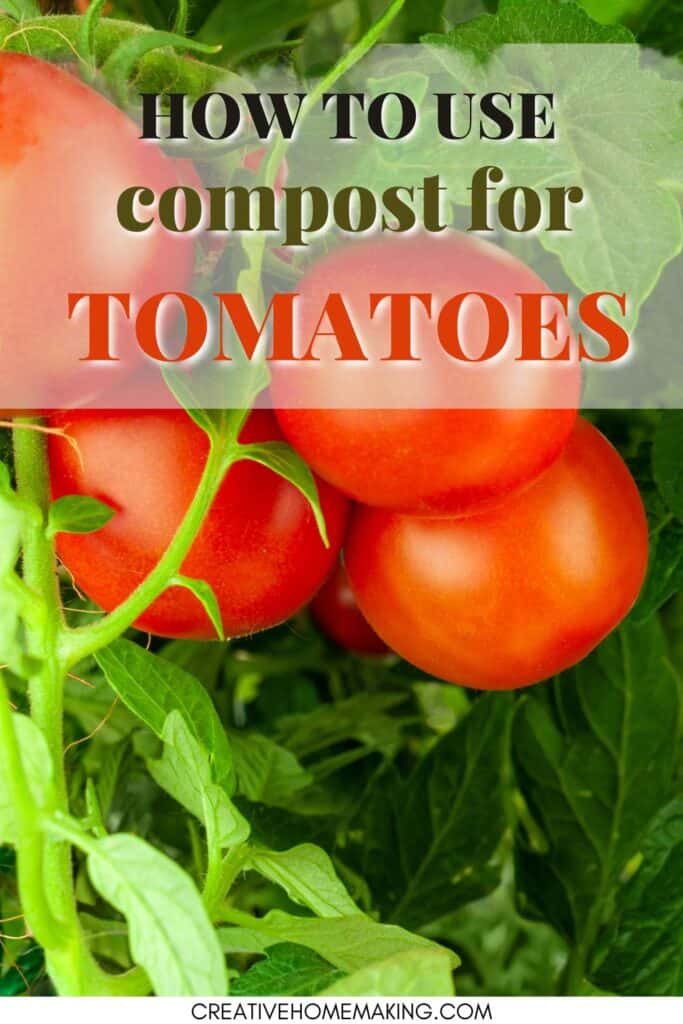
Aeration
Good aeration is essential for healthy tomato plants. A good compost for tomatoes should be well-aerated and free of any disease-causing organisms. Soilless mixes that contain sphagnum peat moss, coir, vermiculite, and sometimes perlite can provide good aeration for your tomato plants.
Related Article: Can Tomatoes Survive Frost?
How to Use Compost for Tomatoes
Mixing Compost with Soil
To create a nutrient-rich soil for your tomato plants, mix compost with sandy loam or fine gravel soil. A 50/50 ratio of soil and compost is ideal. This will help improve soil structure, drainage, and nutrient supply to your tomato plants. You can also add bone meal, kelp meal, and fish meal to the mix for higher potassium, magnesium, and calcium content.
Top-Dressing with Compost
Top-dressing your tomato plants with compost is a great way to provide a slow-release of nutrients to your plants. Simply spread a layer of compost around your tomato plants, making sure not to cover the stem. This will help retain moisture, suppress weeds, and improve the immune system of your tomato plants. You can also add coffee grounds, fish hydrolysate, and coconut coir to the mix for added organic nutrients.
Related Article: Best Natural Fertilizer for Tomatoes
Compost Tea
Compost tea is another great way to provide your tomato plants with a nutrient boost. To make compost tea, fill a cloth bag with compost and soak it in water for 2-3 days. This will allow the decomposition process to release nutrients into the water. Once ready, dilute the compost tea with water and use it to water your tomato plants. This will help improve soil structure, increase microbial activity, and ward off pests.
You can also use compost tea to improve the immune system of your plant’s roots and prevent diseases and pests. Adding mycorrhizae, kelp, and fish hydrolysate can also provide additional nutrients and improve the overall health of your plants.
When choosing a compost, you want to make sure it is affordable and easily accessible. You can make your own homemade compost using kitchen scraps and yard waste, or you can purchase bagged compost. Overall, the best compost for tomatoes is one that is nutrient-dense, has an acidic pH level, and is rich in organic nutrients such as magnesium and calcium. By using the right compost and potting mix, you can grow healthy tomato plants that produce delicious and vibrant tomatoes.
